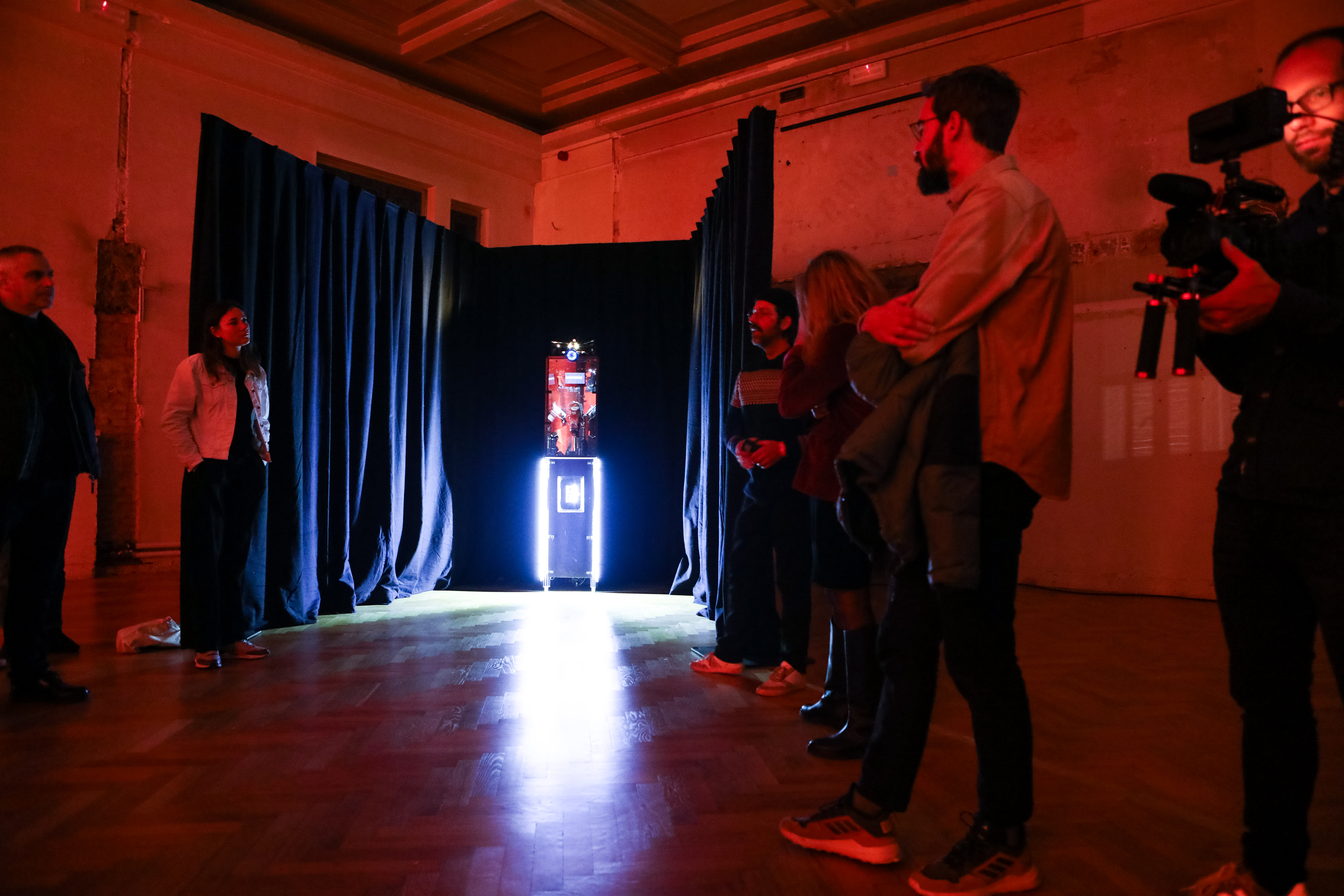Building on its first edition, and working with the same team of curators, the second edition of The Future of Living (TFOL) focused on calls for action: artistic projects that promote change, workshops aimed at prototyping solutions, and open debates seeking to identify the needs of communities and issues to tackle for the future of artificial intelligence.
Outcomes
The two day event consisted of a workshop, art installations and presentations, keynote speeches and panel discussions. It took place at Bozar on 2-3 December 2022, bringing together leading Artificial Intelligence researchers, engineers, artists, thinkers, and entrepreneurs. The participants addressed the main issues concerning our future with AI for all and the future of Artificial Intelligence in our living environment, cities, communities, and culture.The main focus was on how to reappropriate AI for our own needs as citizens, and on sustainability (in the broadest sense of the word) of living with the AI.
115 people were reached directly during the events (main cohort Belgium-based 25-50; people from the arts, technology sector and wider public interested in the theme). There were 2100 visits on the updated website of the project. The objectives of the project were adapted during its implementation. The target group had to be adapted in accordance with the audience of the partners obtained (Bozar was the main partner, iMAL did not participate). Thanks to a multidisciplinary discussion between researchers and creatives and exchange of their ideas, different perspectives on the topic of AI were presented.
The website was updated and instead of the living document, a more user-friendly, AI image generator was provided to ensure higher engagement of website visitors. Instead of a live streaming of the event a videographer was hired to create an aftermovie from the event.
Challenges and Learnings
The project strengthened the relations between the cluster and Bozar, and was an opportunity to start a new partnership with the European Centre of Excellence in AI, who helped to bring one of the keynote speakers.
The main challenge in terms of collaboration was lack of engagement of some of the participating members, but it was addressed by revising the list of participants (some withdrew from the project and some decided to stay and increased their commitment) so that the project could progress.
Fair remuneration is a key imperative for EUNIC Brussels and BOZAR alike. It was provided thanks to the support of the participation of each guest by a partner by which they were suggested, which was agreed on at the beginning of the project.
Major emphasis was put on a fair, inclusive debate. While making a selection of invited guests, gender balance was taken into account by the curator. Furthermore, the project made a point of including an Ukrainian speaker (Anton Lapov) and a Afro-descendant/Senegalese speaker (Linda Dounia Rebeiz) to assure support to the Ukrainian scene, and to assure geographical diversity as well.
The Future of Living was both outstandingly well managed on the professional level, and very pleasant on a personal level, which is a rare and precious combination.
Jana Bernartová, vice-rector of Prague academy of Arts and artist

